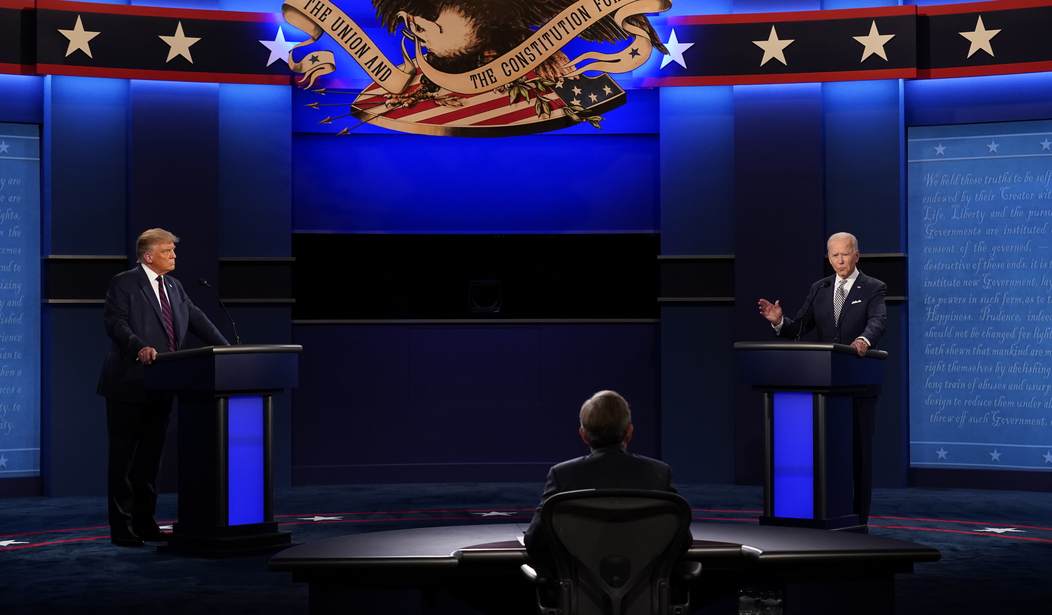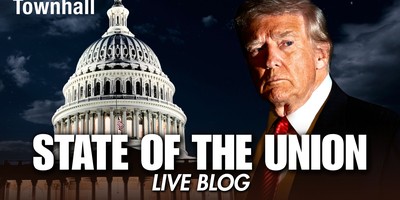The Commission on Presidential Debates (CPD) announced early Thursday morning that they would be hosting the next debate, which was set to take place just one week from today, virtually, sequestering both candidates to a remote location.
The announcement drew heavy criticism early in the day for completely changing the format which many felt would allow candidates access to pre-written answers and aid from staff that would not be possible in person. Before the CPD got a chance to respond to criticism, however, President Trump announced that he would not be willing to take part in a virtual debate.
"I'm not going to waste my time on a virtual debate," the president said during an interview on Fox Business. Instead, he said, he was going to host a campaign rally.
The CPD said that their decision was in the interest of "the health and safety of all involved," believed to be based on the fact that President Trump was diagnosed with the Wuhan coronavirus last week and has been in treatment for the illness.
This explanation simply doesn't hold water if the CPD is basing their decision on what scientists and doctors have agreed to be true of COVID-19 infections.
The president first tested positive for COVID-19 after taking a test Thursday, October 1. He showed symptoms that night and the following day and was transported to Walter Reed Medical Center for treatment the following day and returned to the White House on Monday evening. He has reported a steady improvement since that time.
The Centers for Disease Control and Prevention caution that viral spread from COVID-positive individuals is most likely in the few days before the onset of symptoms or a few days after. But to err on the side of the caution, the CDC recommends:
Recommended
You can be around others after:
- 10 days since symptoms first appeared and
- 24 hours with no fever without the use of fever-reducing medications and
- Other symptoms of COVID-19 are improving*
To go through this point by point, 14 days will have elapsed by debate day since the president and his physicians first reported symptoms. Trump has reported no fever since the first day he checked into Walter Reed. The president and his team of doctors have consistently reported that all symptoms he did experience are either markedly improved or are gone altogether.
The CDC guidelines therefore clearly give the president the go-ahead to be around other people.
Even if the CPD felt that there was still a risk of viral spread from the president during the debate, we witnessed last night the measures they and both campaigns are willing to adopt in order to hold the debate in person. Vice President Pence and Sen. Harris sat 12 feet apart on stage, six feet more than the recommended length for safe social distancing. They sat behind custom-made plexiglass shields and avoided shaking hands out of an abundance of caution.
All attendees were given tests, were sat at safe distances and were required to wear masks throughout the duration of the debate. If these measures are not meant to prevent the spread of COVID-19 from those who actually have the disease, what are they for?
The CPD would also be perfectly within their right to request that both campaigns provide numerous negative COVID-19 tests for all attendees, and put the candidates even further apart and with larger plexiglass shields if they so desire. Moving the candidates into remote, virtual locations has no basis nor reasonable explanation while threatening to severely undermine the process for both President Trump and Joe Biden.
The Trump campaign has been willing to follow the rules and requests from the CPD and the Biden campaign in order to go forward with the historic precedent of giving the American people a fair chance to assess each candidate in a debate.
There is no scientific reasoning behind the CPD's choice to shift a very safe debate format to something that is untested and very likely unfair just a week out without consulting either the president or Joe Biden.

























Join the conversation as a VIP Member